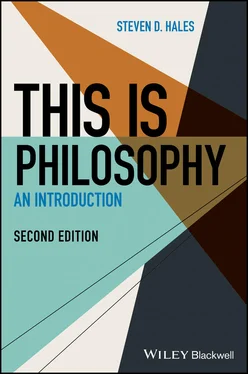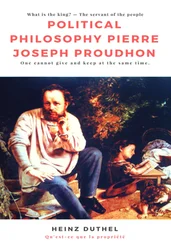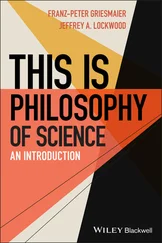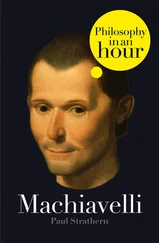A second way to introduce philosophy is by showing how ethics, epistemology, metaphysics, and the other familiar branches of the field address modern concerns, or hot-button topics of our time. For example, a course could be structured around race and social justice, and the philosophical armamentarium wheeled out to engage those topics. There is merit in this course design as well, since it is vital for students to see that philosophy does not consist of ossified ideas they need to memorize, but is a powerful means of engaging with and solving modern problems. It is also useful in that metaphysics can be brought to bear on, say, “race,” political philosophy on “social justice,” and so forth, demonstrating what each specialty has to contribute to the same cluster of interrelated subjects. A risk to this approach is that students may walk away thinking that philosophy is just about trendy topics, and miss out on 98% of what philosophers do and have thought about. Another problem is that today’s exciting headline issues often become tomorrow’s birdcage liner. Many introductory students will only take one course in philosophy, and afterwards they should have some sense of the durability and majesty of our profession.
The present book takes a third path. Although it includes commentary on the great historical philosophers and tries to show contemporary relevance, the book introduces students to philosophy topically. While there are references to Buddhism, the Vedas, Islam, and so on, the issues addressed are the bread-and-butter mainstream subjects in broadly analytic Western philosophy. Any student who successfully completes a course based on this book will have a solid grounding in wide variety of topics in different subdisciplines, as well as the pros and cons of different theoretical ways to address those topics. A student who masters the content of this book is well-placed to move on as a philosophy major in the vast majority of philosophy departments.
The problems of philosophy are deeply interconnected, and there is no natural or obvious starting point from which to begin. Indeed, plausible arguments might be given for starting with almost any of the central problems in the field. You might think that we should surely start with epistemology; until we understand what knowledge is and settle the matter of whether and how we can gain any knowledge at all, how can we possibly determine whether we can have knowledge of God, or our moral duties, or the nature of the mind? Clearly epistemology is the most fundamental philosophical project. Wait–how can we be sure that knowledge is valuable to have? Or that we ought to care about gaining truth and avoiding error? We’d better start with axiology and sort out duty, obligation, and responsibility first. Normativity and ethics must be foundational. Of course, how can we determine what our epistemic responsibilities are if we don’t antecedently know whether we are free to believe one thing rather than another, or if we are truly at liberty to make choices? Let’s begin with the issue of free will and figure that out first. If we’re not free, that torpedoes a lot of other philosophical agendas. Yet if we don’t know what kinds of beings we are, how can we ever determine whether we are free? Maybe personal identity should be the first stop on the road. And so on.
The chapters in the present book are self-contained units on the topics they address. While there are occasional references within them to other chapters, they can be taught or studied in any order. In Daybreak (section 454),Nietzsche wrote that, “A book such as this is not for reading straight through or reading aloud but for dipping into, especially when out walking or on a journey; you must be able to stick your head into it and out of it again and again and discover nothing familiar around you.” To some extent, the same is true of This is Philosophy: An Introduction , even though it is much more straightforwardly systematic and less aphoristic than Nietzsche’s Daybreak .
That said, the chapters are not randomly distributed, and are placed in one sensible progression. Most people have views about ethics and God before ever encountering philosophy, and so starting with topics that about which they have already given some thought is a natural way to entice students into a deeper investigation. Appeal to human free choice is a venerable move in theodicy, and one with which the chapter on God ends. A chapter on free will then follows. Afterwards are a pair of chapters focusing on what it is to be a thinking, persisting person at all–personal identity and philosophy of mind. The next chapter, on knowledge, ties together the threads of evidence, reason-giving, and rational belief that appear, one way or another, in all of the chapters, and ends with a comprehensive skeptical problem. Having built so much philosophical infrastructure, the book ends as many treatises once did, with a discussion of political philosophy–why we might want a government at all, and the broad outlines of how different types might be justified. But do not feel beholden to the ordering I use; reorder the chapters in the way you think best.
As all instructors know, the problems of philosophy resemble a Mandelbrot Set, and the more closely one focuses on the small details, the more complications one finds. Some of the initial hooks and spirals can be found in the annotated bibliographies at the end of each chapter. These bibliographies list primary sources from the great thinkers that students may wish to read in conjunction with the present chapters, as well as some of the more accessible contemporary literature that is the next step for the beginning philosopher.
New to the second edition
The biggest addition to the 2nd edition is an entirely new chapter on political philosophy, in which the state of nature, anarchy, contractarianism, leviathan and philosopher kings, libertarianism, and the liberal state all are presented and examined. Every other chapter has been reviewed line-by-line, with updated examples, clearer language, and new hyperlinks. Some chapters (e.g. Freedom) have been substantially revised, and in other cases the presentation of classic arguments has been tightened and improved (e.g. the Cosmological Argument). The annotated bibliographies have also been amended and made more relevant.
If this is the first philosophy book you’ve ever read, then you probably have no idea what you are in for. You pick up a book on chemistry and you expect diagrams of molecules and talk about “valences” , a book on German and there will be long multi-syllable words and lots of umlauts. But philosophy? What could that be about?
The word “philosophy” comes from two Greek words: “philia” which was one of the Greek words for love, and “sophia” which means wisdom. Thus philosophy is the love of wisdom. You may think that is not terribly informative, and it isn’t. However, you have to remember that back in ancient Greece, to be a scholar at all meant that one is a philosopher. You might have been a stonemason, a fisherman, a soldier, a physician, or a philosopher, a pursuit that would have included mathematics and science. Over the years, as concrete, definite advances have been made in different areas, philosophy has spawned spin-offs, fields that have become their own disciplines with their own specific methodology and subject matter. Mathematics was one of the first fields to splinter off this way, and then in the Renaissance science became separate from philosophy. In the 19th century psychology broke away from philosophy, followed by economics. Most recently cognitive science, which used to be the scientific end of philosophy of mind, has become its own field. In some ways philosophy proper is left with the hardest questions, the ones that we have made the least definitive progress on.
Читать дальше












